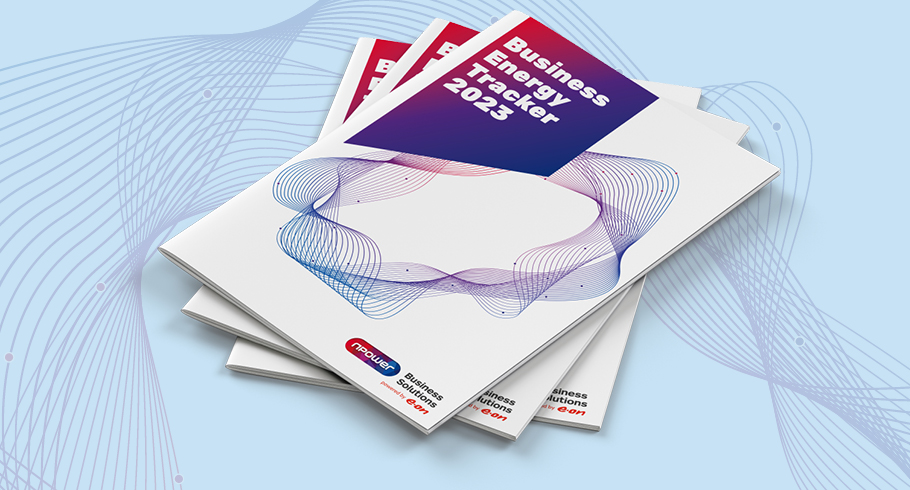The energy landscape in 2022 was marked by unprecedented volatility. Russia’s invasion of Ukraine has had, and continues to have, a huge impact on the wholesale energy market, and subsequently the prices businesses pay for their power and gas.
Throw in high inflation, supply chain issues and a once-in-a-generation cost-of-living crisis, and it has continued to be a really difficult time for businesses, many of which are still recovering from the lasting impact of the Covid-19 pandemic.
Last year, we conducted our Business Energy Tracker for the first time, to understand the impact of the energy market and policy decisions on businesses' attitudes towards energy, risk and their potential investment plans. The results showed that more than three quarters (77%) of businesses felt that energy was their top risk.
We have now launched the Business Energy Tracker 2023. This in-depth piece of research, produced with support from the Major Energy Users Council (MEUC) and Energy Intensive Users Group (EIUG), gathers the voices of over 100 large organisations.
So, has anything changed since 2022?
The results reveal that energy remains the top concern for businesses for the second year running, and is a board-level concern for 91% of the organisations we spoke to, up from 80% in 2022.
Interestingly, the second biggest concern is achieving net zero, something which is inextricably linked to having the right energy policy and incentives in place. This is why it’s more important than ever that the voice of business is heard when energy policy is shaped.
What is the impact on business confidence?
One major finding from the report is that the energy crisis is impacting businesses’ ability to plan for the long-term, with just one in six saying they are only able to plan for the next 6-12 months.
That said, the findings also highlight that businesses are aware of the benefits of investing in net zero initiatives, with almost two thirds of respondents making sustainability their top investment priority in 2023.
However, for businesses to have the confidence to invest and press ahead with their sustainability plans, the right policy must be in place.
Does policy need to change?
In 2022, 82% of our respondents said the government should be doing more to protect businesses. Three Prime Ministers later, the picture is slightly more positive, with just 75% believing that more could be done.
With the former Department for Business, Energy and Industrial Strategy (BEIS) being split into four new sector-focused entities, including the Department for Energy Security and Net Zero (DESNZ), we wanted to find out if the initiatives brought into force over the past year have had a positive impact.
The Energy Bill Relief Scheme (EBRS) – introduced in October 2022 – has been a real help to more than one third (37%) of our respondents. However, 87% are very or quite concerned about its replacement, the Energy Bills Discount Scheme (EBDS), which offers less support to most businesses.
That said, when it comes to what they would like to see from the government, one interesting finding is that businesses would welcome more than just reductions in their energy invoices. Three quarters (75%) of respondents would like to receive incentives to reduce their overall power demand through energy efficiency initiatives, while 60% would like more support in switching from fossil fuels to renewable alternatives.
A mission for the future
At npower Business Solutions (nBS), we are committed to ensuring that the voice of business is heard at the highest level. The insight from the Business Energy Tracker will give us the opportunity to present the findings to the government, as well as other influential stakeholders.
With its new focussed departments, the government has an opportunity to support businesses, who are crucial to the UK realising its net zero ambitions, by working in collaboration to drive these changes forward.
You can download your free copy of the Business Energy Tracker 2023 report here.


/npm214%20Digital_H_UB88.jpg)
/npm214%20Digital_H_UB136.jpg)

/npm214%20Digital_H_UB126.jpg)


/npm214%20Digital_H_UB121.jpg)
/Author%20Profile%20Ainsworth_Anthony_G.png)
